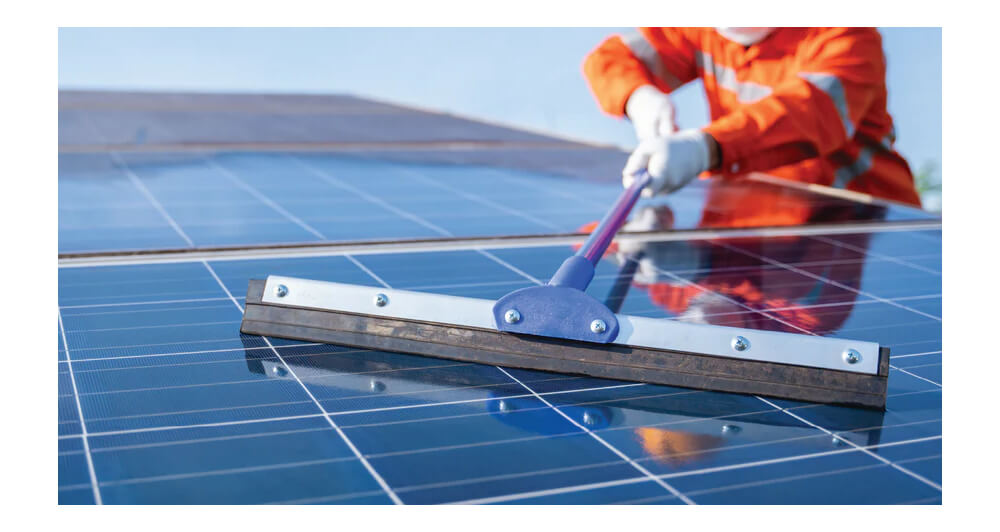Content
As the adoption of solar energy continues to soar globally, maintaining the efficiency of solar panels becomes paramount. This is where solar panel cleaner step in as essential aids to sustain solar power's effectiveness. Understanding the composition and efficacy of these cleaners not only helps in choosing the right product but also in preserving the longevity and performance of solar installations.

Solar panels are exposed to the environment, which means they accumulate dust, pollen, bird droppings, and other debris that can significantly obstruct sunlight absorption. Studies suggest that dirty solar panels can lose more than 20% of their energy output, while the loss can surge to 50% if not cleaned appropriately. Regular cleaning with apt solar panel cleaners ensures that panels operate at peak efficiency.
-
Chemical Cleaners: These are formulated to break down the grime and dust without damaging the solar panel's surface. They often require a minimal amount of water to rinse off.
-
Water-based Cleaners: Using deionized water, these cleaners are effective for removing soluble substances and minimizing the risk of deposits, often leaving the panels streak-free.
-
Robotic Cleaners: For large solar farms, robotic cleaners provide automated solutions that save time and labor while ensuring consistent results.
-
Eco-friendly Cleaners: Made from biodegradable substances, these cleaners are safe for the environment and are effective without the use of harsh chemicals.
The composition of solar panel cleaners is crucial as it must effectively clean without causing harm to the solar panels or the environment. Below is a table highlighting common components found in solar panel cleaners:
|
Ingredient
|
Function
|
Common in Type
|
|
Isopropyl alcohol
|
Dissolves dirt without streaks
|
Chemical, Eco-friendly
|
|
Ethylene glycol
|
Helps in breaking down grime
|
Chemical
|
|
Citric acid
|
Natural cleaner for hard stains
|
Eco-friendly
|
|
Deionized water
|
Prevents residue
|
Water-based
|
This visualization offers a clear view of the balanced approach to a formulation that prioritizes both effectiveness and environmental safety. By integrating these components wisely, manufacturers can ensure that their solar panel cleaners provide maximum cleaning efficacy while being eco-conscious.
Continuing from the current understanding of solar panel cleaners, it's also important to consider the application methods and the frequency of cleaning required to maintain optimal performance. Below, we outline the best practices in the maintenance of solar panels using various types of cleaners.
-
Initial Inspection: Before applying any cleaner, inspect the solar panels for any visible damage or excessive soiling that might require professional attention.
-
Choosing the Right Time: Cleaning should ideally be done during the morning or late afternoon to avoid the heat of the sun, which can cause rapid evaporation and streaking.
-
Application Method: Depending on the type of cleaner, application methods can vary. Sprays and manual wipe-downs are common for small installations, while larger setups might benefit from automated robotic systems.
-
Frequency of Cleaning: The frequency depends largely on the local environment. In dusty areas or places with high bird activity, more frequent cleaning is necessary. Typically, cleaning once per quarter is sufficient, but in some environments, monthly cleaning may be required.
-
Safety Measures: Always ensure that safety protocols are followed, especially for rooftop installations. Use of non-slip shoes and safety harnesses is recommended.

To facilitate better understanding, here is a table detailing the recommended cleaning schedule based on different environmental conditions:
|
Environment
|
Recommended Cleaning Frequency
|
|
Urban Areas
|
Quarterly
|
|
Rural Dusty Areas
|
Bi-monthly
|
|
Coastal Areas
|
Monthly (due to salt build-up)
|
|
Industrial Areas
|
Monthly (due to heavier soot and debris)
|
This table serves as a general guideline. Local conditions should be considered to adjust the frequency as needed. Regular maintenance ensures that the solar panels remain efficient over their lifespan, thus safeguarding the investment and maximizing the energy yield.
In conclusion, using the appropriate solar panel cleaner and adhering to a consistent cleaning regimen tailored to the environment can significantly impact the efficiency and durability of solar installations. Proper care and maintenance not only enhance the performance but also extend the life of solar panels, making them a more viable and sustainable option for energy generation.
In conclusion, maintaining solar panels through regular cleaning is essential for ensuring their optimal performance and longevity. By selecting appropriate cleaning solutions tailored to the specific environmental conditions and adhering to manufacturer guidelines, solar panel owners can protect their investments while maximizing energy output. Establishing a consistent cleaning schedule, being mindful of the environmental impact of cleaning products, and prioritizing safety during maintenance activities are critical components of effective solar panel care. Ultimately, a proactive approach to solar panel maintenance not only enhances efficiency but also supports sustainability efforts, making solar energy a reliable and environmentally friendly choice for the future.







